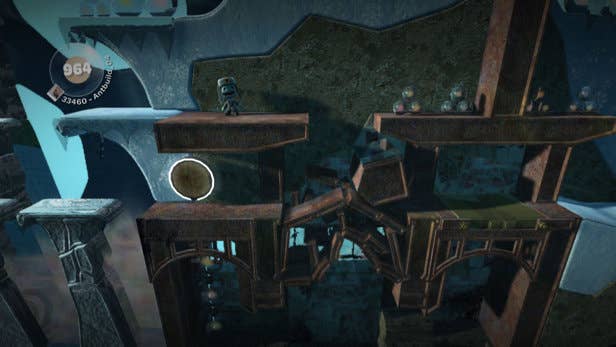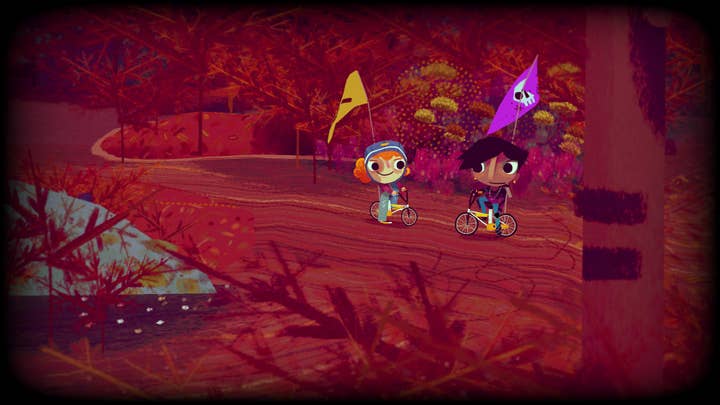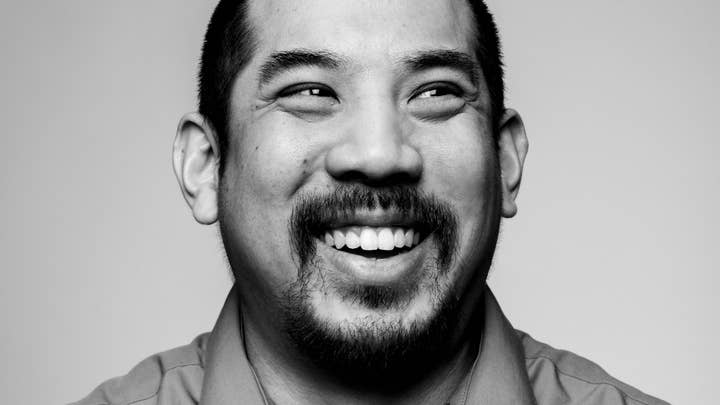Moo Yu on finding the heart in game development
Team Artichoke’s founder on indie burnout, diversity initiatives and collaborative approaches as creative director
Despite being an accomplished programmer with credits at renowned studios like Insomniac Games and Media Molecule, Moo Yu feels like he’s still finding his feet.
Yu is something of a veteran in the games industry, having started his game development career in Southern California, before relocating to the UK and working on a multitude of mobile and indie projects including the crowdfunded Knights and Bikes.
But his current position – creative director at his own studio, Team Artichoke, working on an unannounced game -- he took up with reluctance.
“I've always hated that title, and once you get it, you're seen as this genius. I don't want to be associated with that,” says Yu, although he admits this aversion meant he’s had a bigger learning curve to when it comes to developing the creative director skills he now needs for his team.
"I think there was a big pressure in America for almost all the studios to shift towards shooters, and I don't work on violent games"
“All the new things that I'm learning about this skillset that I underappreciated because I kind of resented it when other people did it, it's been a really eye-opening and fun experience that I’m excited to dig into.”
A reason why developers value or desire the creative director position is, of course, the opportunity to come up with an idea and have the control to realise that vision. You can find out more about how to get a job as a creative director in our Academy guide.
Yu understands what it’s like when a studio’s vision no longer aligns with his own, having started his career at Insomniac working on Ratchet and Clank on PS2 before the developer pivoted to gritty post-apocalyptic series Resistance for PS3.
“I think there was a big pressure in America for almost all the studios to shift towards shooters, and I don't work on violent games,” he says. “And so I was just like, what jobs are there for me?”
Fortunately, Yu found an opportunity across the pond at Media Molecule, which was developing the hugely ambitious and game-changing LittleBigPlanet. The friendly, co-operative and creative nature of the game, also reflected in the comparatively small team of about 20 people making it, left a profound influence on the kind of games he wanted to make.
It was also where he met artist and animator Rex Crowle, and the two would later collaborate to work on Knights and Bikes, a co-op action adventure game inspired by The Goonies, Secret of Mana, and the latter’s childhood growing up in Cornwall. After a successful Kickstarter campaign in 2016, the game launched in 2019 to a positive reception. However, working on an action-oriented game with just a core team of two was also intense – hence Yu’s decision to work for mobile developer Trailmix Games afterwards.
“There's a team, so if there's some programming problem, it's kind of nice that the hard work is distributed across the team,” he explains. “Mobile games are also more event-driven, so it's you hitting this menu or this happens and you press this button. It’s a little more relaxing development style because it’s more discrete bits of gameplay, whereas action games like Knights and Bikes, you have to write code for every single frame and everything is interactive.”
Even though Knights and Bikes seemed a small indie project, the reality was that there was significantly more work post-launch – Yu admitted they still have rewards to send out to Kickstarter backers (“I went to the went to the post office last week, I'll go to the post office again this Friday”) – which illustrates the toll it can take when overpromising Kickstarter stretch goals then having to implement them.
“I had to do the Switch port, then I ended up adding online support to Switch, then I did the Xbox port, and then I did the Japanese and Chinese localisation, so I was working nights and weekends the whole time,” he continues. “That was two years of post-release work while having a full-time job.”

Trailmix was meant to not just help pay the bills but give Yu the space to re-energise as he thought about the ideas for his next game. However, the non-stop demands of Knights and Bikes meant he ended up burning out, taking a few months out to recover and almost fearing that the game would be haunting him for the rest of his life, though things have fortunately settled down now.
The upside is that the game has continued to sell and continues to get spotlighted by the press or streamers.
“I'm surprised by that,” says Yu. “I have so much history in the triple-A space, where launch week is most of your sales. With Knights and Bikes, I think launch was probably like 5% of our sales. So it's strange, but I'm very appreciative.”
"[I want] anyone who worked on the project, if it does make money to send me an invoice like every six months"
At the same time as developing Knights and Bikes, Yu was also included as one of the faces of Ensemble, an exhibition from the London Games Festival aiming to showcase creatives in the industry from Black, Asian and Minority Ethnic (BAME) backgrounds. Another member of the exhibition was Chella Ramanan, co-founder of POC in Play, an organisation set up in 2019 to increase the visibility and representation and provide support to People of Colour in the games industry, which Yu also joined as one of its original members.
“It was quite an eye opener for me because I always thought that, as a Chinese programmer, I line up with every expectation capitalism wants,” he explains. “I'm in many respects super privileged, so I was like, these diversity initiatives are for the underprivileged people, so I'm gonna keep my distance and not steal resources. Then it was brought to my attention, ‘But you can give resources, you can help out.’ So it's just been super rewarding to be part of this community in a space where I can talk about things that I could never put words to before. It's been absolutely huge for me.”
Even then, the experience has also allowed Yu to recognise personal barriers in his career that he hadn’t noticed before. “Speaking to other East Asian creators in the West, especially being Chinese, there's this perspective that Chinese people have no creativity and just rip off white ideas, right? I always think about an Apple Box that says, ‘Designed in Cupertino, manufactured in China,’ like, some white guy is a genius and some dumb Chinese people are making it for us.”
But while acknowledging that attributing a game’s development to a single auteur figure makes for an easier narrative, Yu certainly doesn’t harbour any grudges if there was any perception that Knights and Bikes was Crowle’s game while, as programmer, he was merely implementing his ideas. Instead, he adds, “Seeing Rex being able to capture his childhood and Cornwall represented the way that he did definitely made me think, ‘Okay, what's the project that I can do to represent me?’”

This brings us back to Team Artichoke as Yu takes the plunge from programming to directing. Yet based on his past experiences and what he’s learned in being involved in positive diversity initiatives (“I will never do a talk where the purpose is to tell white people that diversity is important – I don’t have time for that”), that outlook has also changed so that it’s not just about a game that represents himself but one that represents the team.
“It's not, ‘Here's my story, and I'm gonna hire a bunch of people to help me tell it,’ but how can I create a game that has enough space that I can tell lots of people's stories?” he explains
That ethos is reflective of the studio’s tagline about making games with heart, which Yu explains is one part about making games that tell emotional and diverse stories, but also in running a studio ethically that treats people well.
“Seeing Rex [Crowle] capture his childhood definitely made me think, ‘Okay, what's the project that I can do to represent me?’”
“I wouldn't say that I had terrible experiences so I'm going to start a company that does it right. It's much more that I think everyone who starts a company should think to do it right, and part of that is reflecting on the things in your past experiences that you thought were less than ideal.”
One example he gives is the way a game’s profits are unevenly distributed between team members. “If you're still employed there, then they'll give you some of it a few years later, but they’ll filter it through a bonus scheme, and it’s based on seniority so the founders or studio directors get the biggest cut. I'm always bitter about that kind of stuff. So for me, anyone who worked on the project, if it does make money, I'll make sure to say, like every six months, send me an invoice. I think that’s really important to me.”
Having also given a talk at this year’s Develop giving insight into how to hire ethically and empathetically, Yu is also seeking a publisher before he’s ready to publicly unveil the game, which he describes as being inspired by Greek mythology and Legally Blonde. But when that time comes, expect an announcement not from him alone but from the team as individuals.
“My game features a female protagonist, so I definitely want a lot of women on my team to share their experiences to blend into the main character's story,” he says. “I want to make sure that my team gets credit for the work that they do.”

